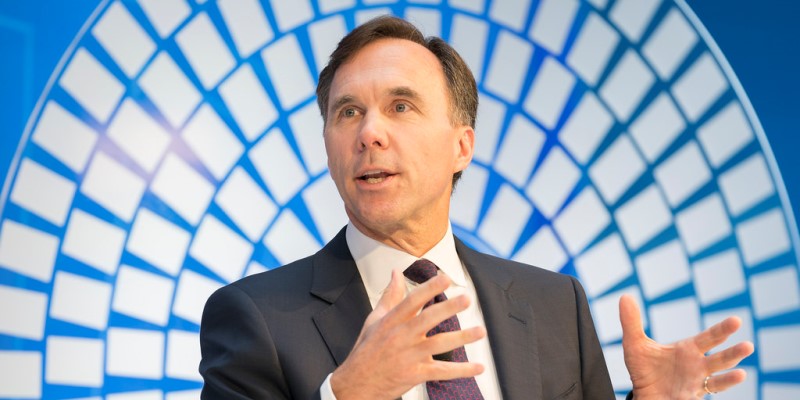Media fuels Morneau’s state of denial

When economic information is released on a Friday before a long weekend, you can assume there’s a strategic reason, which usually results in the sound of crickets from the media. But that sure wasn’t the case last Friday when Statistics Canada released its second quarter (April to June) economic growth numbers.
According to Statistics Canada, “Real gross domestic product (GDP) grew 0.9 per cent in the second quarter” and “Expressed at an annualized rate, real GDP advanced 3.7 per cent in the second quarter.”
The media jumped on the latter statistic with sensational headlines including: “Canada Q2 GDP stronger than expected, jumping 3.7%” (Financial Post), “Canada’s GDP rose 3.7 per cent in the second quarter” (Yahoo News Canada), “Canadian economy expands 3.7%” (Global News) and “Exports drive Canada’s best quarterly economic growth since 2017” (Globe and Mail).
Not to be outdone, Federal Finance Minister Bill Morneau shared these headlines on social media, noting that, “Today’s economic statistics confirm Canada’s strong record of growth under our Government. By making it easier for businesses to invest & putting more money in the pockets of hard-working families, we’re moving Canada forward.”
But with all due respect, Minister Morneau, that’s not what StatsCan’s data confirm.
First, as noted above, the economy grew at 0.9 per cent in the second quarter, not 3.7 per cent. The media used StatsCan’s “annualized growth” number—the projected growth rate for the entire year that would result if the economy keeps growing at the same rate it did last quarter.
But it hasn’t and it won’t.
Since the Liberals were elected in late-2015, quarterly growth has only been above 0.9 per cent in four of 14 quarters and averaged just 0.5 per cent. As of late, it’s been particularly dismal with the economy growing at just 0.1 per cent in the third and first quarters of 2018 and 2019.
What’s more, the Bank of Canada has consistently downgraded economic growth projections for 2019—it now forecasts 1.3 per cent growth in 2019. If that happens, the average annual rate of economic growth since the Liberals formed government will be just 1.8 per cent.
That’s barely above population growth.
Indeed, on a per-person basis, economic output today is $55,742, which is only 2.5 per cent (or $1,343 higher) than four years ago. It’s astonishing Morneau thinks these number “confirm Canada’s strong record of growth under our Government.”
What’s worse, however, is Morneau’s state of denial on business investment, claiming his government has been made it “easier for businesses to invest.”
Friday’s StatsCan data release noted that “GDP growth was moderated by a 1.6 per cent decline in business investment.” When StatsCan striped out investment in residential structures, business investment was actually down 3.5 per cent. And this is just the most recent part of a longer-term trend—business investment has decreased in four of the past five quarters and is down 8 per cent over the past four years.
Business investment remains the lifeblood of our economy and absolutely critical to middle-class prosperity. Investment means new equipment, innovation, new products and ultimately employment for Canadians. The decline in business investment is one of the key reasons economic growth is expected to grow at a sluggish average rate of 1.7 per cent over the next three years—and that does not account for a possible recession.
Minister Morneau likes to talk about his government’s terrific economic record and how it’s made things easier for business, but the data just don’t back him up.
Rather than help, the Trudeau government has implemented policies that discourage investment, entrepreneurship and economic growth. It’s raised personal income taxes for skilled educated workers, entrepreneurs and businessowners, implemented a carbon tax, is neck-deep in deficits with mounting debt (which implies the possibility of even higher taxes in the future) and added to the regulatory burden for business.
Last Friday’s StatsCan data drop—right before the summer’s last long weekend—reconfirms that the economy is in trouble. Unfortunately, Canada’s finance minister was fooled by the headlines and continues to ignore many of the most pressing economic issues facing the country.
Authors:
Subscribe to the Fraser Institute
Get the latest news from the Fraser Institute on the latest research studies, news and events.


